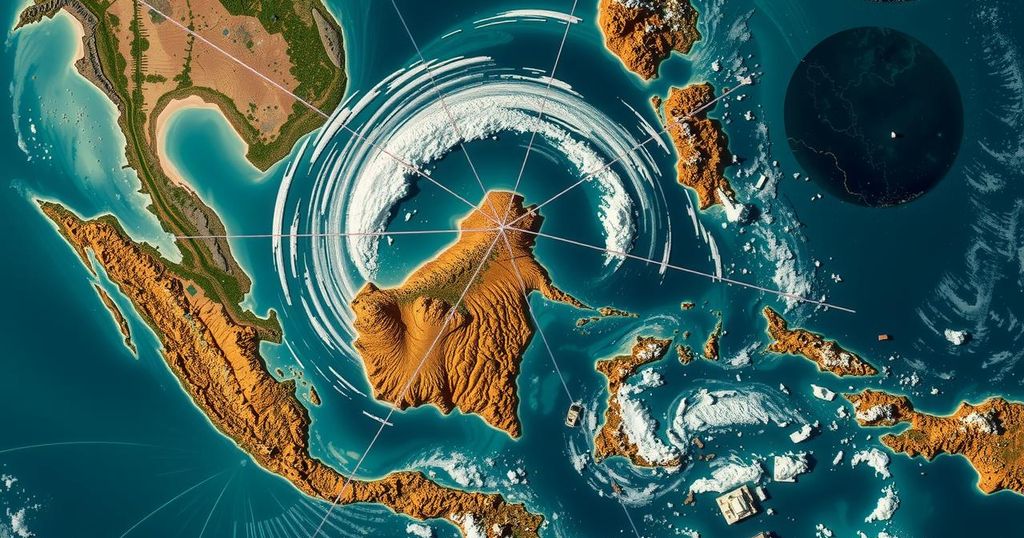Tropical Cyclone Chido struck Agalega on December 11, 2024, as a Category 4 equivalent cyclone with winds of 222 km/h, causing extensive damage and disrupting communications. Following Agalega, Chido moved to Mayotte, causing further destruction and leaving many residents homeless. Emergency aid is being organized, but access to impacted areas remains challenging due to the storm’s aftermath.
On December 11, 2024, Agalega, a small island pair in the Indian Ocean with a population of approximately 330, was struck directly by Tropical Cyclone Chido. Classified as a Category 4 equivalent cyclone, Chido recorded wind speeds of 222 km/h (138 mph), marking it as the most powerful cyclone to impact the islands since 1983. The cyclone caused substantial infrastructure damage across both islands; many homes and educational institutions were reported damaged, leading residents of the North Island to seek refuge at the local airport.
In addition to wind damage, Chido created storm surges reaching up to 8 m (26 feet), which devastated the majority of Agalega’s residences and public facilities. Communications were severely disrupted, hampering rescue operations. In response to the disaster, Mauritian Minister Shakeel Mohamed announced that a Mauritian Coast Guard Dornier aircraft was dispatched to deliver aid. Subsequently, an Indian cargo plane also commenced its support for the recovery efforts.
After impacting Agalega, the cyclone proceeded towards northern Madagascar, subsequently making landfall on Mayotte on December 14. Here, it caused relentless downpours, storm surges, and high winds reaching 220 km/h (136 mph). Reports from Mayotte indicate extensive damage, with residential areas flattened, trees uprooted, and critical facilities like hospitals and airports severely impacted. The cyclone’s effects have left much of the population isolated due to power outages and communication failures.
Preliminary assessments suggest that approximately one-third of Mayotte’s 320,000 inhabitants have lost their homes. The situation is further exacerbated by acute shortages of potable water and medical supplies, complicating ongoing rescue efforts. Emergency teams have been mobilized; however, many areas remain inaccessible due to blockages and flooding. Officials expressed concern on December 16, warning that the death toll could significantly increase, with many individuals still unaccounted for as the full scope of destruction continues to unfold.
Tropical Cyclone Chido represents a significant meteorological event impacting the Indian Ocean region, particularly the islands of Agalega and Mayotte. With wind speeds and storm surges recorded at critical levels, this cyclone highlights the vulnerability of small island communities to extreme weather phenomena. Understanding the repercussions of such events is crucial for local authorities and humanitarian organizations as they endeavor to manage emergencies and provide necessary relief.
The catastrophic impact of Tropical Cyclone Chido on Agalega and Mayotte underscores the dire consequences of powerful cyclones on vulnerable island communities. The immediate needs for shelter, medical supplies, and communication restoration are paramount for the affected populations. Ongoing assessments and collaborative efforts for disaster response are essential as authorities aim to address the substantial human toll and infrastructural damage resulting from this cyclone. The situation necessitates urgent interventions to aid recovery and rebuild lives in the aftermath of this devastating event.
Original Source: watchers.news






